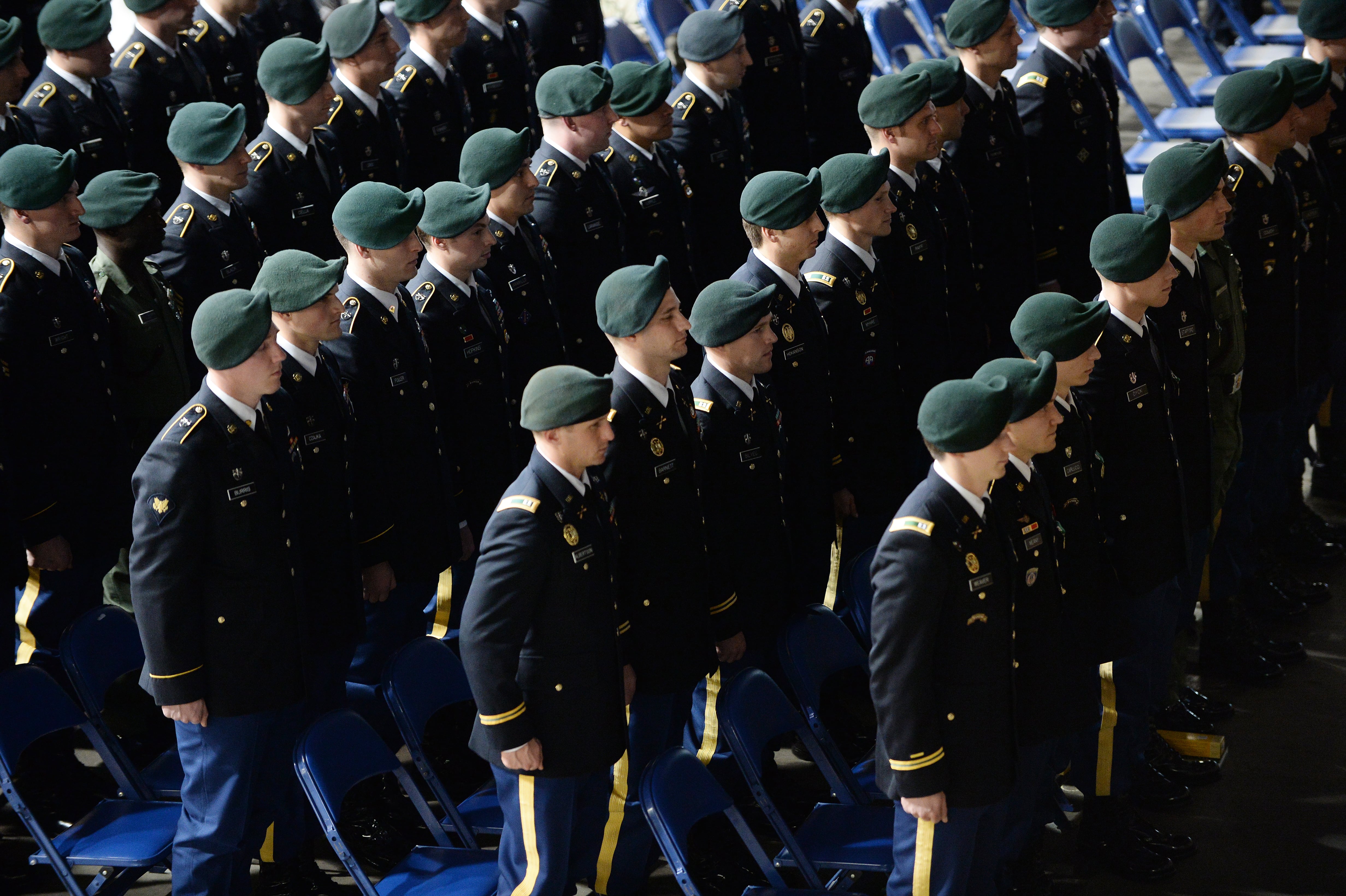The Army’s first female Green Beret is expected to graduate in a matter of weeks, according to unnamed military sources who spoke with the New York Times.
A spokesman for Army Special Operations Command declined to comment. As of November, only three women had graduated the 24-day Special Forces Assessment and Selection course, Army Times learned previously, and none had finished the entire year-long Qualification Course.
“It’s not a topic that we’re willing to discuss at this point,” said command spokesman Lt. Col. Loren Bymer, citing the reality that the female soldier has still not completed the entirety of training.
The woman is an enlisted soldier with the National Guard and is slated to become an 18C, or Special Forces engineer sergeant, the Times reported. The graduation will be one of the largest milestones since the Defense Department opened all the branch’s combat positions up to women in 2016.
Although she hasn’t technically graduated yet, her completion is nearly guaranteed, according to officials cited by the Times.
The first woman to complete the Special Forces selection course did so in November 2018. Selection acts as a gateway to the rest of the Q Course, but is no guarantee that a candidate will complete the entirety of the program, which mints enlisted Green Berets as specialists in medicine, weapons, communications and engineering.
Women have long served alongside special operations units, however, working in enabler roles that often require them to be in direct action, as evidenced by the death of Shannon Kent. A senior Navy cryptologist, Kent was killed by a suicide bomber alongside an Army Green Beret and two other Americans in Manbij, Syria, on Jan. 16, 2019.
At least one other woman was considered qualified for Army Special Forces, according to a New York Times report from 1981. Capt. Kathleen Wilder was told just before graduation that she had failed a field exercise. She filed a sex discrimination complaint, which ultimately determined she had been wrongly denied graduation.
The Q Course recently went through an “optimization,” which truncated training to roughly a year in order to produce operators quicker and more efficiently, according to leadership. The course now has more focus on the competition phase prior to actual conflicts breaking out and added more interaction between Green Beret candidates and their psychological operations and civil affairs counterparts.
Maj. Gen. Patrick B. Roberson, commander of the John F. Kennedy Special Warfare Center and School at Fort Bragg, took control of the program this summer, relieving Maj. Gen. Kurt Sonntag.
Sonntag’s tenure and the changes he started to bring to the course were criticized in an anonymous 2017 email from one Green Beret instructor as a way to boost graduation rates and ensure that women can pass.
Nothing in the 24-day selection course was changed in the optimization, according to leadership who spoke with Army Times during a visit to Fort Bragg in November.
The primary changes to the Q Course occurred after selection and involved doing away with training tasks that were added over the past decade. During that time period, the Army’s Special Forces Groups were deploying more frequently and could not devote as much time to train new Green Berets.
As deployment-to-dwell ratios ease, the Green Beret teams have gradually taken back some of those training responsibilities. Course officials stressed that all the changes to the course were done at the request of, and with input from, the operational force.
Kyle Rempfer was an editor and reporter who has covered combat operations, criminal cases, foreign military assistance and training accidents. Before entering journalism, Kyle served in U.S. Air Force Special Tactics and deployed in 2014 to Paktika Province, Afghanistan, and Baghdad, Iraq.





